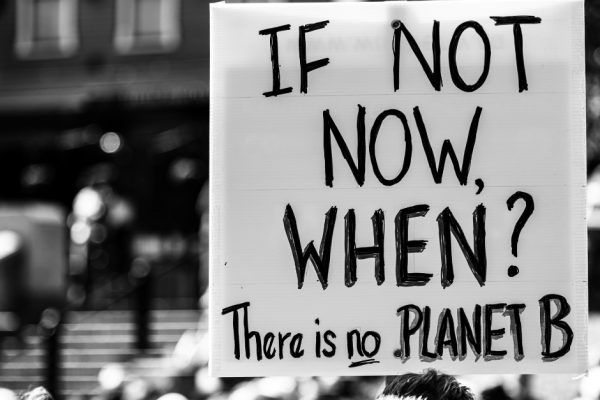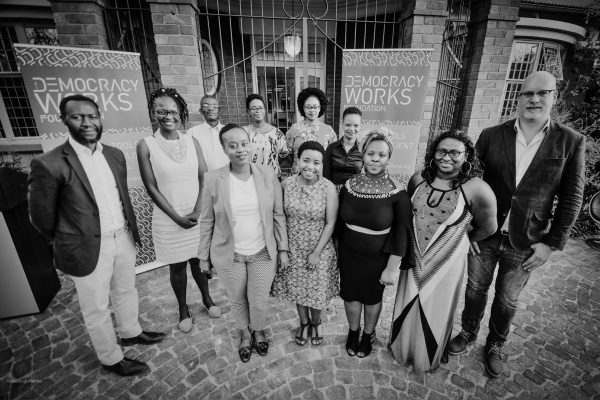The declaration of a state of national disaster over the COVID-19 pandemic by President Cyril Ramaphosa on 15 March 2020 brings new laws into play.
Section 26 of the Disaster Management Act of 2002[i] (the Act) confers primary responsibility in coordinating the response to and management of a national disaster on the national executive. But these do not preclude the responsibilities of local and provincial levels of government from addressing the pressing priorities of South Africa’s communities.
Disaster management and the role of legislatures
While it is clear that the president and ministers should take the leading role in a national disaster, the Act does have something to say about the role of Parliament.
The minister of cooperative governance and traditional affairs, who is responsible for disaster management, reports to Parliament. The minister must submit annual reports produced by the National Centre on Disaster Management to Parliament for scrutiny.
If the National Centre is unable to get organs of state or other entities to comply with its directives, the minister can report this to Parliament. The same applies if organs of state fail to submit their disaster management plans to the National Centre, after reporting such failure to the minister.
Moreover as with all other functions, the executive remains accountable to the legislature even in the execution of its authority under the Act, both at the national and provincial levels of government.
Constitutional mandate of Parliament and Provincial Legislatures is not suspended
A state of national disaster does not suspend the constitutional mandate and responsibilities of Parliament and Provincial Legislatures. These responsibilities include oversight over the executive and state functions, law-making as well as promoting and enabling public participation. In fact, MPs and MPLs are designated as essential services under the current state of disaster and during the lockdown period.
While stringent measures on social distancing disrupted the plenary functions of Parliament and the lockdown led to the cancellation of some sittings and meetings, the disruptions to Parliament’s programme have so far been minimal. Had the COVID-19 pandemic not occurred, MPs were scheduled to conduct constituency work from March 23 until after the Easter break meaning that MPs would have been in communities interfacing with the public during this period. The extension of the lock down to the end of April could disrupt the start of the second term of Parliament and scheduled committee meetings and briefings.
A press release issued by Parliament on 5 April 2020[ii] states that it is Parliament’s responsibility to “oversee the delivery of services needed to relieve the burden of the COVID-19 pandemic on the public”. It also outlines the kinds of activities that can be considered constituency work and, in particular, what MPs should be busy with during the lockdown:
“Parliament, whose Members are regarded as an essential service, in terms of the lockdown regulations, has the authority to execute its oversight functions during a lockdown or social distancing period. This can be done through, for example, individual MPs carrying out constituency work in various communities and holding the Executive accountable for implementing measures designed to overcome the state of disaster. The responsibility to conduct oversight is, therefore, not limited to committee meetings.”
The press statement reaffirms the oversight mandate of MPs. Importantly, it emphasises that they are responsible for interacting with communities, a crucial element of enabling and promoting public involvement in holding the executive to account. MPs and MPLs are uniquely able to be on the ground monitoring and evaluating the national and provincial executives’ performance of their functions, as well as whether they are serving communities and all societal stakeholders in accordance with the constitution.
This reiterates the message from Parliament’s presiding officers in a 27 March press statement that MPs “will be fulfilling their constitutional responsibilities during this period in their constituencies in support of efforts against COVID-19”.[iii]
Members of Provincial Legislatures and of Municipal Councils also form part of essential services and therefore by extension what applies to Members of Parliament should apply to them.
The 5 April statement also acknowledges that social distancing and lockdowns should not prevent MPs from holding committee meetings as this can be done virtually. Indeed, like many other institutions and organisations, the country’s legislatures must find creative ways to use technology to continue to address pressing priorities.
It’s a question of political will
However, part of the statement raises concerns about Parliament’s willingness to exercise oversight over the executive during the state of disaster.
After affirming that it is within Parliament’s – and by extension Provincial Legislatures’ – mandate and capacity to hold committee meetings, the statement says that should this require the executive to appear before committees, conducting oversight at this time “could risk taking them away from their extremely critical function of managing measures to combat [the] spread of COVID-19 and preserving life”[iv].
This is not strictly correct. Failure by MPs and MPLs to exercise oversight over the executive could result in the pandemic being used as a license to override principles of good governance, including upholding the rule of law, promoting transparency and being accountable to citizens.
Now more than ever, when the executive exercises wide ranging powers including restricting certain civil liberties and political rights guaranteed in the constitution, Parliamentary oversight should actively ensure the promotion of the public interest.
It is concerning that opposition MPs are highlighting the failure of Parliament and its committees to arrange virtual meetings[v] to conduct business, even while other essential service workers in the executive are continuing with their work.
The big question is who is policing MPs and MPLs during this period and to what extent are they reporting their activities and contact with communities to presiding officers?
Active citizenship is needed
Where the MPs and MPLs may be reluctant to question the actions and decisions of the executive in case this distracts them from their focus on addressing the pandemic, active and conscientious citizens should apply pressure , as necessary.
Nothing precludes citizens from petitioning MPs and MPLs, nor from requiring them to execute their constituency work by representing their concerns to the executive, even if it means having to call a virtual committee meeting that requires the attendance of a minister or MEC to come and account.
Civil society needs to be vigilant. It cannot think that any violation of rights is justified simply because the measures put in place under the state of disaster and lockdown have limited some civil and political freedoms.
There is a symbiotic relationship between the oversight and public participation mandate of MPs and MPLs and active citizenship. During a lockdown, citizens should proactively take their concerns to MPs and MPLs, raising the alarm if and when they believe there is abuse of power by the executive.
Active citizens should not allow MPs and MPLs to think they can use this period to take a break from their duties. Parliament and Provincial Legislatures should publish the contact details of MPs and MPLs; where this is not done the public should contact the institutions’ public relations and communications channels.
Current issues requiring the attention of national, provincial and local government include the consistency of service delivery, constraints in the provision of other healthcare services given the prioritisation of the COVID-19 pandemic; safety and security, including police brutality; as well as social security and access to basic needs such as water, sanitation, food and shelter.
Where citizens have difficulty in getting the relevant authorities to intervene or to respond to their issues, MPs, MPLs and municipal councilors should be enlisted to take on their concerns, demands and grievances.
End Notes:
[i] http://www.cogta.gov.za/cgta_2016/wp-content/uploads/2016/06/DISASTER-MANAGEMENT-ACT.pdf . The Disaster Management Act of 2002[i] (the Act) defines a disaster as a “progressive or sudden, widespread or localised, natural or human-caused occurrence which causes or threatens to cause death, injury or disease; damage to property, infrastructure or the environment; or disruption of the life of a community; and is of a magnitude that exceeds the ability of those affected by the disaster to cope with its effects using their own resources.”
[ii] https://www.parliament.gov.za/press-releases/constitutional-obligations-parliament-during-covid-19-pandemic
[iii] https://www.parliament.gov.za/press-releases/message-parliaments-presiding-officers-nationwide-lockdown-combat-covid-19-infection1
[iv] https://www.parliament.gov.za/press-releases/constitutional-obligations-parliament-during-covid-19-pandemic
[v] See John Steenhuisen Twitter response commenting on how school children are able to have virtual lessons while Parliament is failing to use similar technology to have its own meetings https://twitter.com/jsteenhuisen/status/1247856255919628290?s=11









